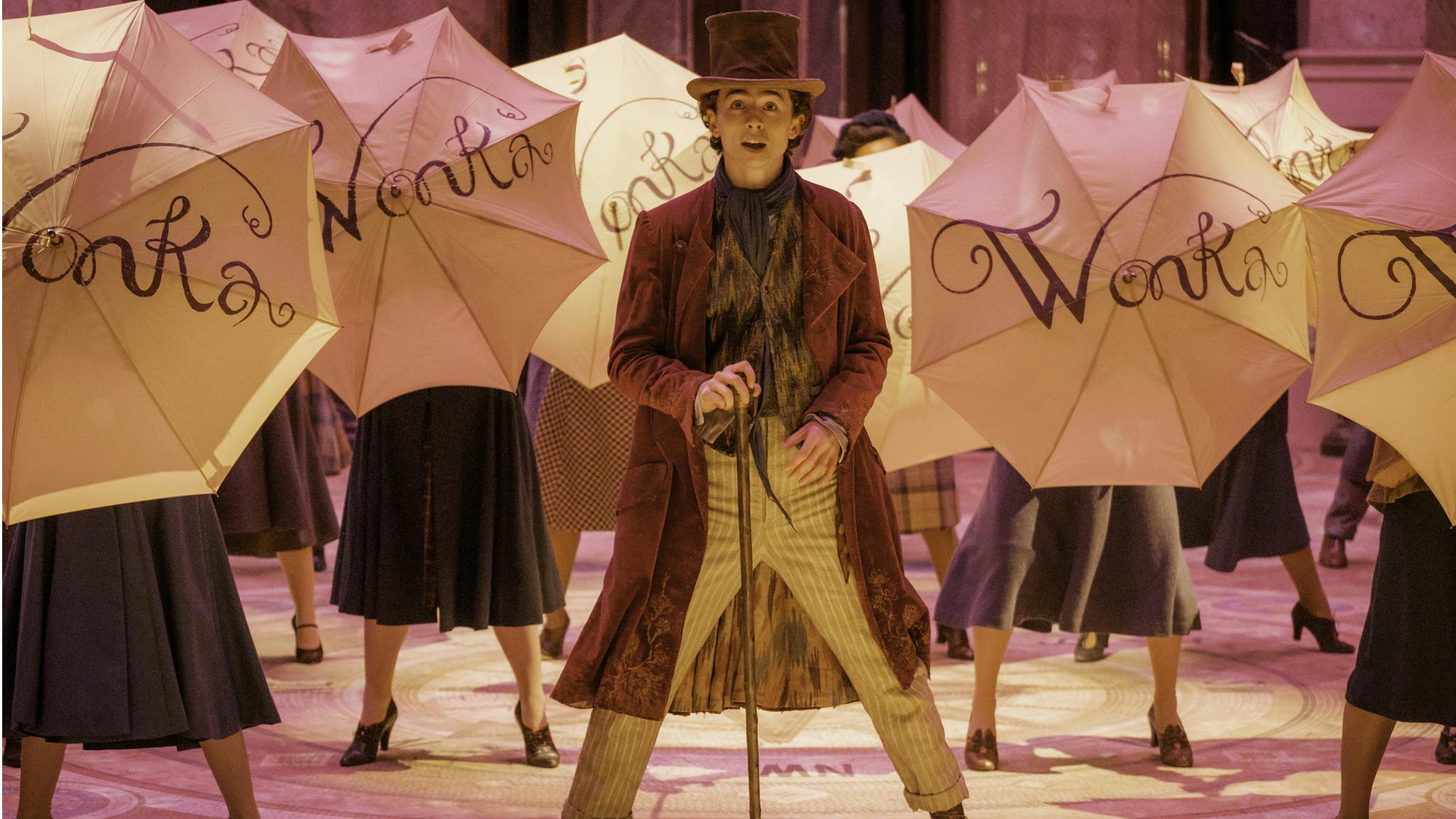The provenance of Willy Wonka has always been a guessing game. Such was the point. In Roald Dahl’s 1964 book, Charlie And The Chocolate Factory, the eccentric owner and his delicious industry were intentionally given a magician’s secrecy and mystery, inspired by the wonder and excitement of the author’s time at Repton boarding school in the 1930s, when rival chocolate companies Cadbury and Rowntree would ply the schoolboys with sample boxes as part of their market research. With industrial espionage and underhanded tactics to best one another rife from both sides, secrecy around what went on in the enormous factories was paramount to an absurd degree. It only made them endlessly more fascinating. Much like Willy Wonka himself.
Things being what they are now, inevitably the origin stories were going to be examined and, when there were none to pull on, made up, for fresh franchising. In 2005, Johnny Depp turned Gene Wilder’s charismatic weirdo from the 1971 movie into a sugary, humourless Michael Jackson pastiche – a man damaged by a troubled upbringing from his cruel dentist father, trying to find a place in the world. It was rubbish.
Wonka, on the other hand, is brilliant. Timothée Chalamet’s lead is a likeable lad, wide-eyed with hope as he arrives in a new city – a confectioned Gotham that’s all the most chocolate box-looking bits of old New York, Victorian London, Munich and Paris rolled into one, and covered in snow – and eternally optimistic, even as he realises that starting his own chocolate business is going to be harder than he thought. With a top hat full of dreams, a suitcase full of chocolate, he’s got the best, most amazing products in town. He’s also got nowhere near enough money to get by, has been suckered into a massive hotel bill he’s got to work off, and the town’s other chocolate magnates don’t want him on their turf, paying off dodgy coppers to stop him selling on the street.
